What Is DOGE ETF (DOJE) Crypto Coin? The First Regulated Dogecoin Investment Explained
DOGE ETF Fee Calculator
Investment Calculator
Calculate how the 1.5% annual fee impacts your DOGE ETF investment over time
Estimate how much Dogecoin might grow (based on analyst projections)
For years, buying Dogecoin meant setting up a crypto wallet, dealing with exchanges, and worrying about private keys. Now, you can buy DOGE the same way you buy Apple or Tesla stock - through your brokerage account. The DOGE ETF, officially known as the REX-Osprey DOGE ETF (ticker: DOJE), launched on September 18, 2025, and it’s the first regulated investment product that lets you track Dogecoin’s price without owning the actual cryptocurrency.
What Exactly Is the DOGE ETF?
The DOGE ETF isn’t a coin. It’s a fund that trades on the NYSEMKT exchange like any other stock. When you buy shares of DOJE, you’re buying a slice of a fund that holds Dogecoin - but not directly. Instead, it uses a mix of actual DOGE tokens and financial derivatives to mirror the coin’s price movements. This structure was approved by the U.S. Securities and Exchange Commission (SEC), which is a big deal. Until now, no memecoin had ever gotten this kind of regulatory green light.Unlike Bitcoin or Ethereum ETFs that hold the actual coins in cold storage, DOJE uses a Cayman Islands subsidiary to hold its Dogecoin. This setup helps with tax rules and international regulations, but it also adds complexity. The fund’s performance doesn’t always match DOGE’s price perfectly. During volatile swings - like the October 10 crypto flash crash - the ETF can lag or drift slightly because of how its derivatives are priced.
How Does It Work?
You don’t need a crypto wallet. You don’t need to understand blockchain. If you use Fidelity, Charles Schwab, or Robinhood, you can buy DOJE shares just like you’d buy SPY or VOO. The fund is designed for people who want exposure to Dogecoin but don’t want the hassle or risk of managing digital assets themselves.Here’s the catch: the fund doesn’t just buy DOGE and hold it. It also uses swaps and futures contracts to track the price. That means if Dogecoin surges 20% in a day, DOJE might only rise 18% - or even drop if the derivatives misprice. This tracking error is small most of the time, but during wild market moves, it can matter.
The fund is custodied by a U.S. bank, which reduces the risk of hacks compared to crypto exchanges. But REX Shares’ own prospectus warns: “Custody risk remains.” If the bank’s systems are breached, or if private keys are lost, you could lose your investment. That’s not hypothetical. Crypto thefts happen - even to institutions.
Costs and Fees
DOJE charges a 1.5% annual expense ratio. That means for every $1,000 you invest, you pay $15 per year just to hold it. That’s lower than Grayscale’s old Dogecoin Trust (which charged 2.5%), but higher than most Bitcoin ETFs, which now hover around 0.25%.Why so high? Because this is a new product with low volume. The fund only had $42.7 million in assets under management as of October 27, 2025. That’s tiny compared to Bitcoin ETFs, which hold over $22 billion. Higher fees help cover the costs of legal compliance, custody, and derivatives trading. If DOJE grows, the fee might drop. But for now, it eats into small gains.
Who Is This For?
This ETF isn’t for crypto purists. It’s for people who believe in Dogecoin’s popularity but don’t trust exchanges or want to keep their crypto investments inside their retirement accounts. Many users on Reddit and Fidelity forums say the same thing: “My parents finally bought DOGE because it’s an ETF.” One 65-year-old investor told a forum moderator, “I’ve held ETFs for 30 years. This feels safe.”It’s also for retail investors who want to trade DOGE during market hours without waiting for crypto exchanges to open or dealing with KYC delays. On its first day, DOJE attracted $17 million in new money - more than most analysts expected. That tells you there’s real demand from people who’ve never touched crypto before.
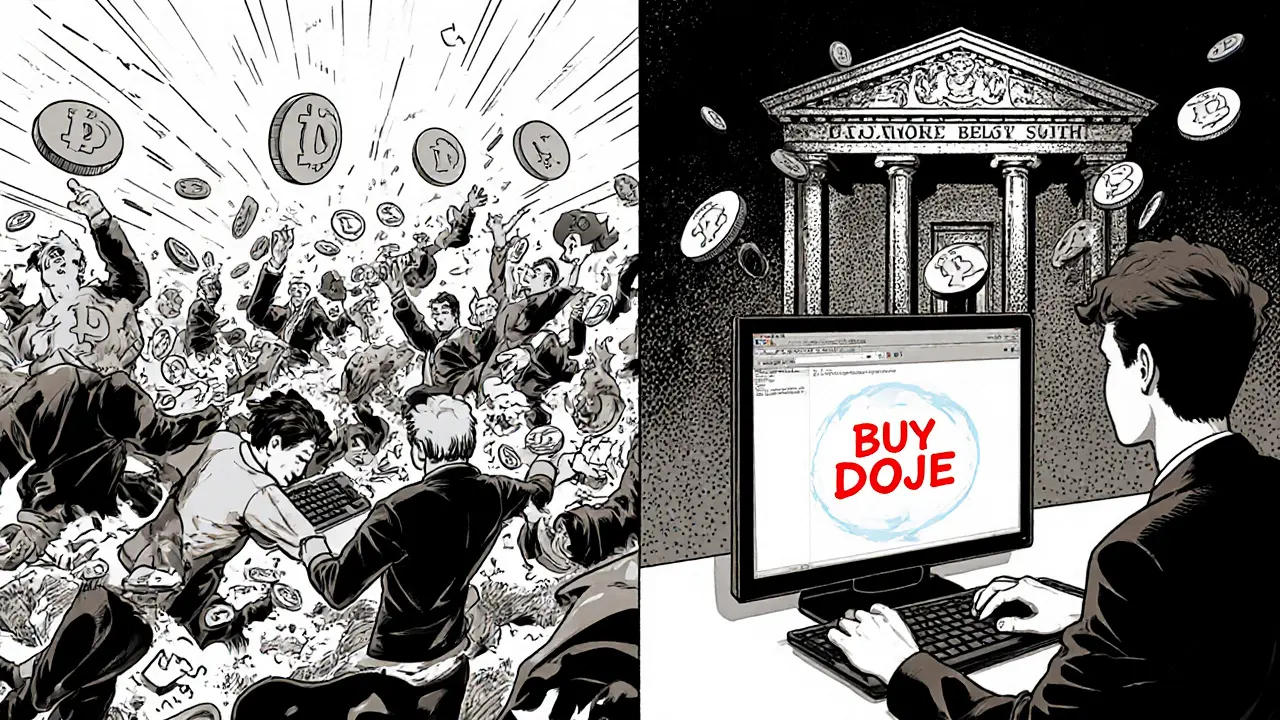
How Is It Different From Other Dogecoin Investments?
Before DOJE, the only way to get regulated exposure to Dogecoin was through Grayscale’s Dogecoin Trust. But that trust didn’t trade on major exchanges. You couldn’t buy it easily. Its price often swung wildly above or below the actual value of DOGE. DOJE fixes that. It trades like a stock, with tight spreads and real-time pricing.But here’s the twist: DOJE isn’t a “spot ETF.” That’s the term used for Bitcoin and Ethereum funds that buy and hold the actual coin. DOJE uses derivatives. So technically, you’re not buying Dogecoin - you’re buying a contract that tracks it. That’s why Nasdaq warned investors: “Investing in DOJE is not equivalent to investing directly in Dogecoin.”
Market Reaction and Performance
When DOJE launched, Dogecoin was trading at $0.29. It rose 7% that day. But over the next 30 days, DOGE dropped 11%, largely due to the October 10 crypto crash. DOJE mirrored that decline, but with a slight lag. Investors who bought on day one saw their holdings fall - not because the ETF failed, but because Dogecoin itself fell.Some analysts are bullish. Javon Marks predicted DOGE could hit $2.28 by early 2026 - an 860% jump. That’s possible, but wildly optimistic. More realistic projections from Cantor Fitzgerald suggest memecoin ETFs could hit $5-7 billion in assets over the next three years. That’s still a fraction of Bitcoin ETFs, but it’s a start.
Big institutions haven’t jumped in yet. Only 12% of asset managers surveyed by EY in September 2025 said they planned to invest in memecoin ETFs. Compare that to 37% for Bitcoin ETFs. DOJE is still seen as a retail play - a fun, meme-driven product, not a serious institutional asset.
Regulatory Risks and Uncertainty
The SEC approved DOJE under the Investment Company Act of 1940 - the same law used by mutual funds and traditional ETFs. That’s unusual. Most crypto ETFs file under the Securities Act of 1933. The SEC’s choice here suggests they’re treating DOGE more like a commodity than a security. But the Commodity Futures Trading Commission (CFTC) also claims jurisdiction over Dogecoin. That creates a legal gray zone.SEC Chair Gary Gensler testified in late September 2025 that the agency is still working out how to classify memecoins. A future regulatory shift could force DOJE to change its structure - or even shut down. That’s not likely soon, but it’s a risk you can’t ignore.
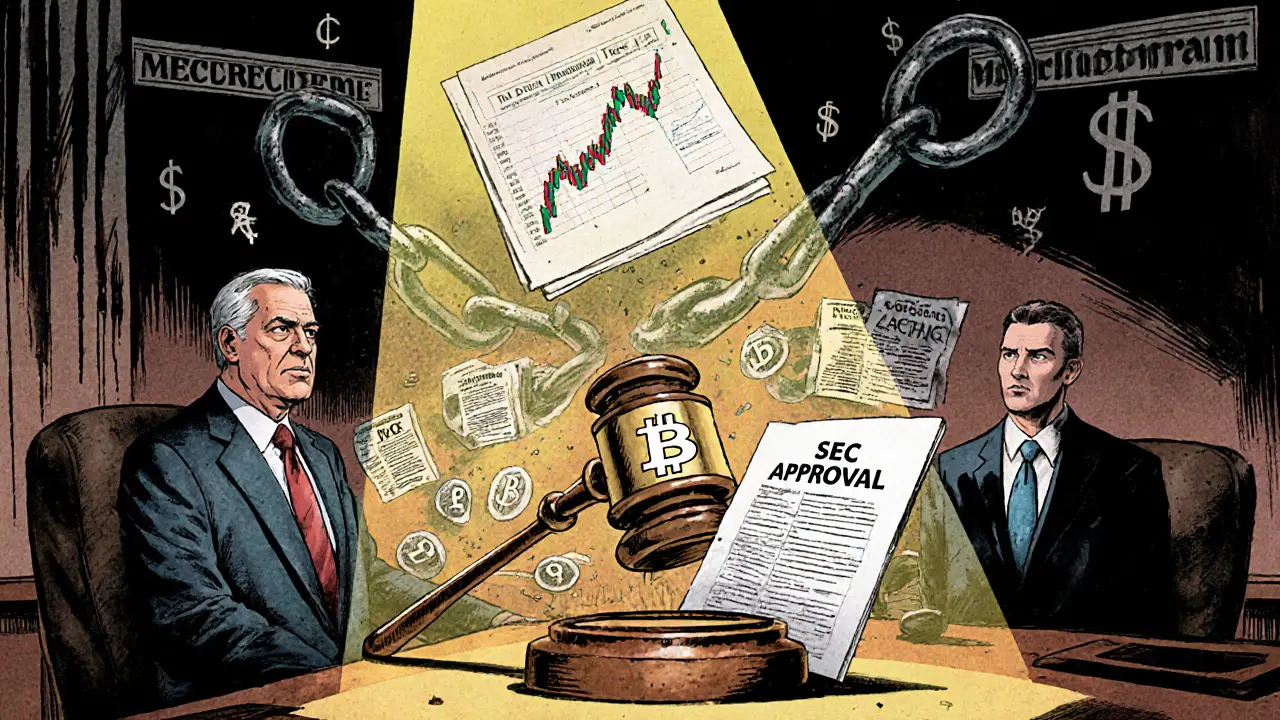
Should You Buy DOJE?
If you want to bet on Dogecoin’s popularity without managing wallets, DOJE makes sense. It’s simple, regulated, and accessible. But it’s not a magic bullet. The 1.5% fee is high for a volatile asset. The tracking error means you won’t get full exposure to DOGE’s gains. And if Dogecoin crashes, so does your ETF.Only invest what you’re willing to lose. DOGE has no utility. It’s a meme. It has no roadmap. It doesn’t solve a problem. It’s popular because it’s fun. DOJE turns that fun into an investment - but it doesn’t change the underlying risk.
Tax Implications
When you sell DOJE shares, you pay capital gains tax - just like you would with any stock. That’s different from buying Dogecoin directly, where the IRS treats each transaction as a taxable event (even buying coffee with DOGE). With DOJE, you only owe taxes when you sell your shares. That simplifies tax reporting significantly.Still, you need to track your cost basis and sale price. Your brokerage will give you a 1099-B form at year-end, but you’re responsible for reporting it correctly. If you’re unsure, talk to a tax professional familiar with crypto ETFs.
What’s Next for DOJE?
REX Shares has already hinted they might launch ETFs for other memecoins - Shiba Inu, Pepe, or even new ones - if DOJE proves popular. Osprey Funds is talking to Wall Street banks about white-label versions. That could mean DOJE-style products on more platforms soon.But the future depends on two things: Dogecoin’s price and the SEC’s next move. If DOGE keeps climbing, DOJE will grow. If Dogecoin fades, so will this ETF. And if the SEC changes its stance on memecoins, DOJE could be forced to restructure or delist.
For now, DOJE is a milestone - the first time a memecoin got the same treatment as Apple or Microsoft. But it’s also a reminder: regulation doesn’t eliminate risk. It just changes its shape.
Is DOGE ETF the same as owning Dogecoin?
No. The DOGE ETF (DOJE) tracks Dogecoin’s price but doesn’t give you actual DOGE tokens. You own shares in a fund that uses a mix of real Dogecoin and financial derivatives. You can’t send DOJE shares to a wallet or use them to pay for goods. It’s a financial product, not cryptocurrency ownership.
Can I buy DOGE ETF on Coinbase or Binance?
No. DOJE trades on the NYSEMKT exchange, not on crypto exchanges. You need a traditional brokerage account - like Fidelity, Schwab, or Robinhood - to buy it. You can’t buy DOJE with crypto or through a crypto wallet.
Why does DOJE have a 1.5% fee when Bitcoin ETFs charge less?
DOJE is newer and has far less money invested in it. Bitcoin ETFs have over $22 billion in assets, which lets them lower fees through scale. DOJE only had $42.7 million in assets as of late October 2025. Higher fees cover the cost of legal compliance, derivatives trading, and custody. If DOJE grows, the fee may drop.
Is DOJE a safe investment?
It’s safer than buying DOGE on an exchange because it’s regulated and custodied by a U.S. bank. But Dogecoin itself is extremely volatile. DOJE can lose value fast if DOGE crashes. The fund’s own documents warn you could lose “all or substantially all” of your investment. Regulatory uncertainty also remains. It’s not a guaranteed or safe play - just a more accessible one.
Can I hold DOJE in my IRA or 401(k)?
Yes. Because DOJE is an SEC-approved ETF traded on a major exchange, many retirement accounts allow it. This is one of its biggest advantages over direct crypto purchases, which most retirement plans prohibit. Check with your plan provider to confirm.
What happens if Dogecoin gets banned?
If the U.S. government banned Dogecoin, DOJE would likely be forced to liquidate its holdings. The fund’s prospectus includes “Digital Assets Risk” as a key warning. If DOGE becomes illegal or untradeable, the ETF could collapse or be delisted. That’s a remote but real possibility.
Does DOJE pay dividends?
No. DOJE does not pay dividends. It’s designed to track Dogecoin’s price only. Any profit comes from selling shares at a higher price than you bought them.
How do I know if DOJE is tracking DOGE correctly?
Compare DOJE’s price to Dogecoin’s price on major exchanges like Coinbase or Binance. If DOJE is trading at $0.28 and DOGE is at $0.29, that’s normal. If DOJE is trading at $0.22 while DOGE is at $0.30, that’s a significant tracking error. Check the REX Shares website for daily updates on net asset value (NAV) vs. market price.
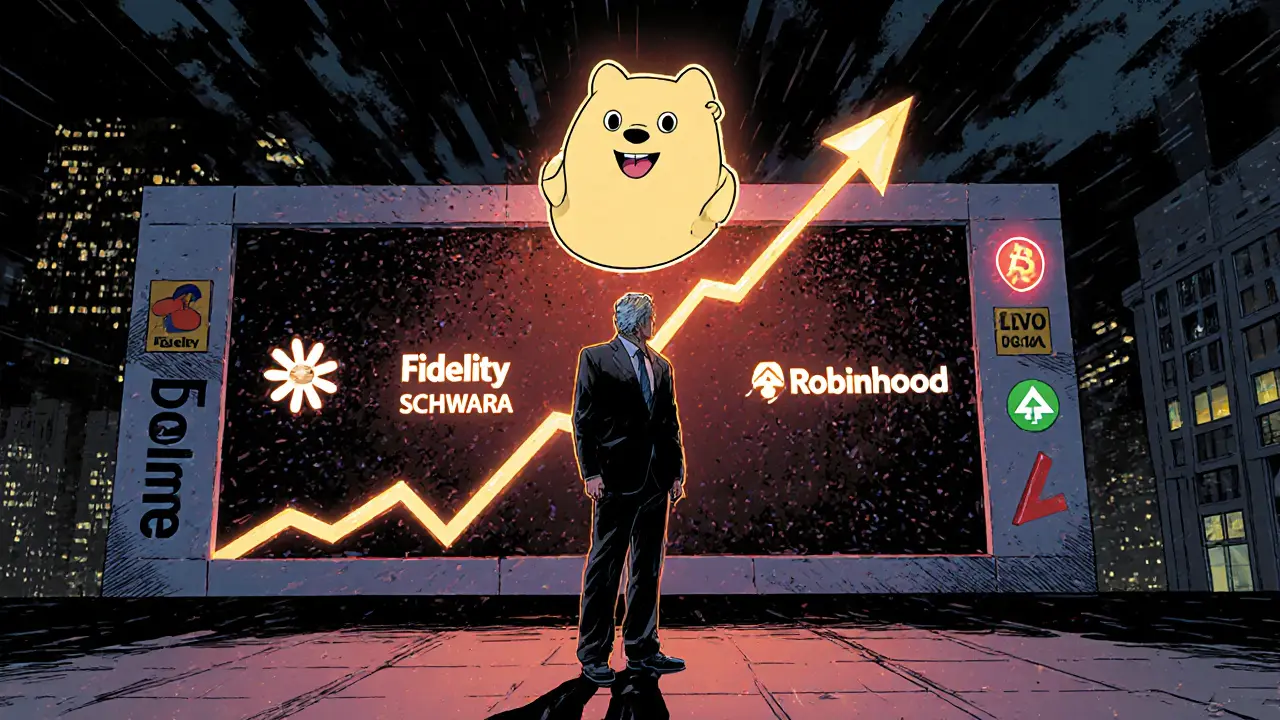
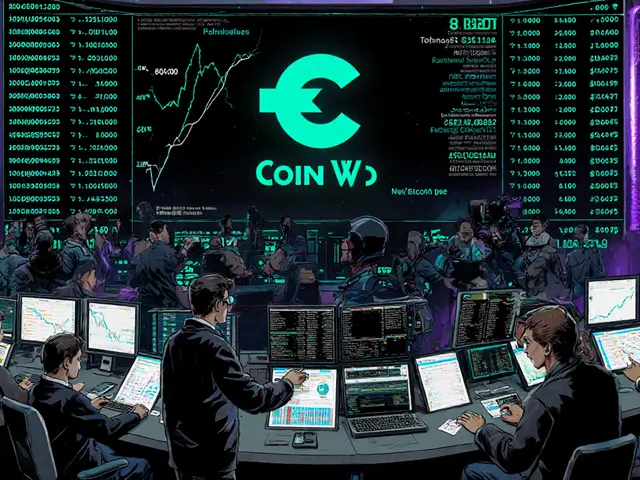
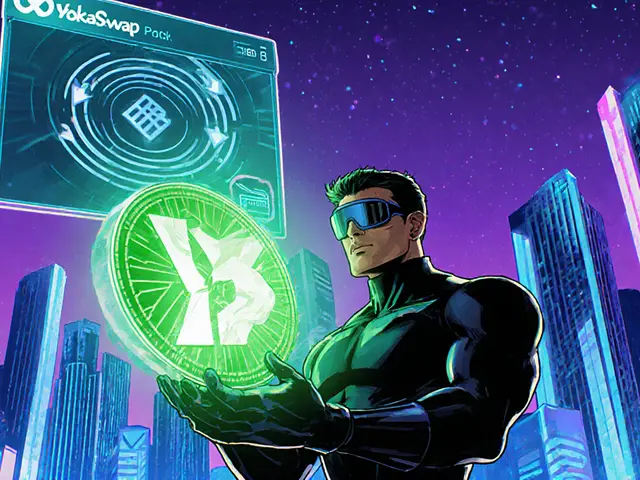


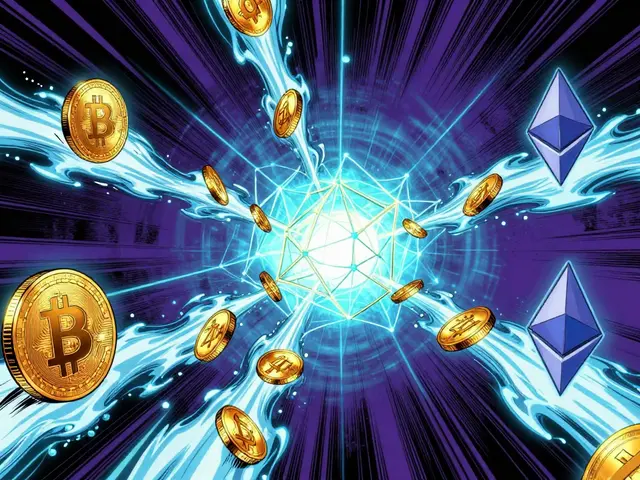
13 Comments
Prateek Kumar Mondal
October 31 2025This is huge. No more wallet headaches. Just buy DOJE like any other stock and forget about private keys. Finally something normal people can use.
Nick Cooney
November 1 2025so the sec approved a meme coin etf... but it uses derivatives and has a 1.5% fee?? cool. i guess we're just monetizing the chaos now. 🤷♂️
Clarice Coelho Marlière Arruda
November 1 2025i asked my dad if he'd buy this and he said 'if it's on robinhood and i dont have to learn blockchain then sure'... honestly that's the whole point
Brian Collett
November 2 2025wait so if dogecoin crashes 50% does DOJE lag behind or match it? because if it lags then you're paying 1.5% to get less exposure than buying the coin directly. that's wild.
Allison Andrews
November 2 2025regulation doesn't make something safe. it just makes it legal. dogecoin was always a social experiment. now it's a regulated social experiment. the irony is beautiful.
Wayne Overton
November 3 20251.5% fee for a meme coin? that's like charging rent on a clown car
Alisa Rosner
November 4 2025Just a heads up! 🚨 DOJE is NOT the same as owning DOGE! You can't send it to a wallet, use it to buy pizza, or moon the moon. It's a financial product. Think of it like a stock that follows a meme. Also, yes, your IRA can hold it! 🎉
MICHELLE SANTOYO
November 5 2025so we've officially turned a joke into a Wall Street product. next they'll be selling ETFs for NFTs of cats wearing hats. capitalism wins again. i'm not mad. i'm just disappointed.
Lena Novikova
November 7 2025you people act like this is a breakthrough but its just a fee grab. the SEC approved this because they have no idea what to do with crypto. they just want to control it. and now you're paying extra to get watered down exposure. dumb
Olav Hans-Ols
November 7 2025Honestly? I'm glad this exists. My grandma just bought her first crypto through DOJE. She didn't even know what a blockchain was. She just saw it on her Fidelity app and said 'looks like a stock, I'll try it.' That's progress.
Kevin Johnston
November 9 2025DOGE ETF = meme money made legit 💪🚀
Dr. Monica Ellis-Blied
November 9 2025While this product may appear to offer accessibility and regulatory oversight, one must not overlook the fundamental absence of intrinsic value, the speculative nature of the underlying asset, and the potential for systemic mispricing due to derivative-based tracking mechanisms. Investors should proceed with extreme caution and conduct thorough due diligence.
Herbert Ruiz
November 9 20251.5% fee? For a coin with no utility? Lazy. Just buy DOGE directly if you're serious. This is for people who want the illusion of safety without doing any work.